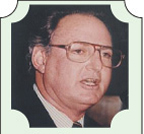By Tony Cozier
IT took two weeks for 14 West Indies cricketers to carry out their threat to pack their kits bags and prematurely abandon their tour of India, the ruinous repercussions of which still reverberate around the Caribbean.
A month later, the West Indies Cricket Board (WICB) has eventually appointed a task force of three to investigate why the players did what they did and whether there were valid reasons; it was also mandated to “design and propose a fast-track dispute resolution mechanism to apply to ongoing tours”.
They have been given until December 13 to present their report.
In the interim, it required just five hours around a table at the Hyatt Hotel in Port-of-Spain on November 7, at a meeting arranged by Ralph Gonsalves, prime minister of St.Vincent and the Grenadines, to arrive at a provisional settlement to the three-way dispute between the WICB, the West Indies Players Association (WIPA) and the disgruntled players that triggered the walkout.

Under the so-called Hyatt Accord, the WICB and the WIPA agreed to re-negotiate their recently signed Memoradum of Understanding (MOU) that was at the heart of the players’ protests; the WICB also accepted that those who quit India would “not be discriminated against or victimized” in selection.
The upshot was that a genuine first team was chosen on Wednesday for the forthcoming tour of South Africa. It includes seven of the 15 from India along with Marlon Samuels who has since claimed he was against the majority decision to abort the tour; Denesh Ramdin is retained as captain.
Four others, including Dwayne Bravo, ODI captain and players’ spokesman in India, are limited-overs specialists. They headed off to South Africa for the T20 Ram Jam; in the circumstances, they would expect to return for the white ball section of the South African tour in January.
All to a significant rider, the tour contract, submitted to the selectees to be signed by Tuesday (November 18), is identical to that rejected in India on the grounds that it reduced their pay packet by as much as 75 per cent.
Now the WICB has accepted the proviso that it revisit the contentious sponsorship clause in its latest MoU with the WIPA. The outcome would be determined “through re-negotiation, arbitration or some other appropriate dispute resolution process”.
According to their attorney, Ralph Thorne, the players are willing to accept the contract under the new guarantees. If the original MoU is restored, their pay would be retroactive; if not, they have the option of arbitration.
The intrusion of governments into the affairs of autonomous sporting organizations is anathema to governing bodies; FIFA members risk suspension because of it. The International Cricket Council (ICC) does not wield such power. Prominent politicians serve on several of its affiliated boards.
Inevitably, Gonsalves – and his fellow PM, Keith Mitchell of Grenada, who was also at the Hyatt meeting – are widely accused of seeking popularity through their well publicized involvement in a sport that, as Gonsalves puts it, “is an existential feature of our Caribbean civilization and regional integration”.
The reality is that it is prompted by WICB’s general inertia and inability to properly manage relations with succeeding generations of players.
This was the third strike in nine years; such open player revolts do not effect other ICC members. Its handling of tetchy stars such as Brian Lara, Chris Gayle and Ramnaresh Sarwan has invariably been clumsy.
If things ran smoothly, there would be no reason for Gonsalves, Mitchell and CARICOM to have to repeatedly navigate West Indies cricket out of choppy waters.
From the time the India fiasco developed, Gonsalves recognized the gravity of the players’ actions and the inaction of the WICB and its president Dave Cameron. He experienced it all before.
When Bravo wrote Cameron early in the piece, seeking his “urgent intervention in helping to remedy the emerging impasse” between players and the board, Cameron replied that the WICB recognized only WIPA as the players’ bargaining agent and left it at that. Bravo said the players were “disheartened and extremely disappointed” at what he termed a “grave injustice”.
As the BCCI placed much of the blame for the tour’s cancellation on the WICB and on him personally, Cameron tweeted: “They’ve criticised you. They’ve doubted you. They’ve lied on you. They’ve done all they can do, but one thing they can’t do is stop you.” It was the height of insensitivity and arrogance.
Gonsalves, as he did in his role in settling the lengthy row between the WICB and Gayle in 2012, moved to prevent the crisis from escalating.
He brought in Mitchell and CARICOM that, on Tuesday, wrote to the BCCI putting forward a plan for “a mutually beneficial resolution”.
Not everyone is satisfied, either with the prime ministers’ presence in an internal cricket matter or with the points in the Hyatt Accord.
Much of the expressed public opinion coincides with last week’s ICC description of the players’ withdrawal from India as “extremely disruptive, damaging and unacceptable.”
Clive Lloyd, captain in the golden era of the Eighties, was on the spot as new chairman of selectors. He said he pointed out the certain consequences of a strike at a couple of meetings with Bravo and his men. They wouldn’t listen, he said in a television interview. His disillusionment was palpable.
There was more than a hint of regret during the week from Darren Sammy, the former Test, now T20 captain.
“There should never be a situation where the on-field play is stopped because of a dispute,” he told the media in South Africa where he is engaged in their T20 Ram Jam with the Titans. “Whichever board member, player or player association, cricket should always be No.1. It is very sad what happened in India. I wish for that never to happen again.”
The ICC placed those “who behave in a similar manner in the future” on notice that they could jeopardize their chances of signing for teams in lucrative domestic franchises such as the IPL, Big Bash and Ram Jam.
For many in newspaper columns, on radio call-in programmes and on social media, the time for action was now, not in the future.
They were all for immediately sacking the rebellious India 14 and starting afresh with those clearly committed to West Indies cricket. It was a solution formed by the strong feeling that enough is enough.
The Hyatt Accord has at least saved those players from themselves. Whether an already insolvent WICB can be saved from financial ruin, with the BCCI’s outrageous damages claim for US$41.9 million looming, is a different matter altogether.










